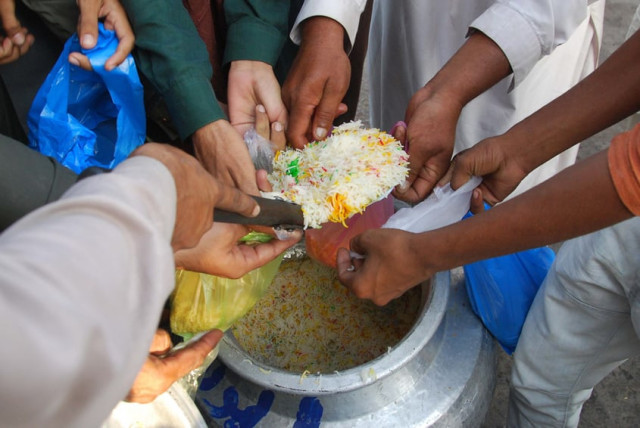Rural to urban migration jeopardising food security
Experts call for realigning policies, strategies in line with country’s food needs

Experts call for realigning policies, strategies in line with country’s food needs. PHOTO: EXPRESS
This was stated by speakers at a seminar on World Food Day organised by the Sustainable Development Policy Institute (SDPI) on Monday.
Pakistan Muslim League-Nawaz (PML-N) MNA Romina Khursheed Alam said that the federal and provincial governments acknowledge that agriculture is the backbone of the economy. Moreover, she said that the trend of rural to urban migration was a matter of concern since, on the one hand, this migration impacts the agriculture production with rural population opting for careers in the city over farming and livestock rearing. On the other, this migration increases the burden on meagre resources of cities.
“We can ensure food security of our people by according priority to rural development and modernisation of agriculture so that the people can earn their livelihood and get food at their doorstep and they do not need to migrate for fulfilling their livelihood or food needs,” Alam said. National Agriculture Research Council (NARC) Director General Dr Muhammad Azeem Khan said they were working on reorienting their policy.
“On the policy front, we have been focusing on achieving self-sufficiency in food and not rural development. Now we have to work on both for achieving food security and putting a halt to the rural-urban migration,” he said.
He added that despite little research and development (R&D) funding, the country had been able to produce a number of high yielding varieties of rice and wheat.
“It is that we reallocate [resources] and provide additional resources for rural development and innovative agriculture methods and techniques to achieve food security,” Khan stressed.
Mina Dowlatchahi, from the Food and Agriculture Organisation (FAO) in Pakistan, said that there was a need for developing appropriate policies and strategies which ensure sufficient food for the growing population of cities and that this was only possible by reinvigorating and strengthening the agriculture sector. “Though a lot of work is being done to improve the levels of nutrition and introducing innovation in the agriculture sector, Pakistan’s proposed Food Security Policy, now in the finalisation phase, needs to address some fundamental questions such as how much Pakistan needs to invest to support small-holding farmers and women farmers in terms of provision of credit and input facilities to them so that they can grow flood and climate resistant crops,” Dowlatchi said.
She added that there was also a need to invest in rural development focusing on providing children with nutritious food, better schooling and clean drinking water.
Pakistan Oil Seed Development Board (POSDB) Managing Director Syed Nasir Ali Shah said that even though Pakistan produces sufficient staple food, the country was still dependent on foreign oilseeds for its cooking oil needs, importing 84 per cent of domestic demand.
Published in The Express Tribune, October 17th, 2017.



















COMMENTS
Comments are moderated and generally will be posted if they are on-topic and not abusive.
For more information, please see our Comments FAQ